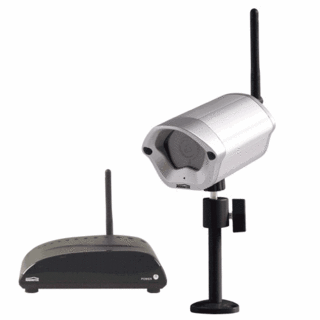A technique that exploits the way Web browsers store recently viewed data could compromise Internet users' privacy by allowing an attacker to check what sites a person has visited recently.
Published:
15 December 2000 y., Friday
A technique that exploits the way Web browsers store recently viewed data could compromise Internet users' privacy by allowing an attacker to check what sites a person has visited recently.
The exploit--called a "timing attack"--allows an unethical Web site to play 20 questions (or more) with a person's browser and check whether the surfer has recently viewed any sites from a predetermined list. An employer could use the technique on internal Web sites to see whether any employees have been visiting the competition's job listings. A Web portal could check whether a person has recently visited any of its sponsors.
"The attacks allow any Web site to determine whether or not each visitor has recently visited some other site" or set of sites, Edward Felten, a professor of computer science at Princeton University, and Michael Schneider, a graduate student, wrote in a paper published at a technical conference last month. "The attacker can do this without the knowledge or consent of either the user or the other site," they wrote. The attack takes advantage of the data caches used by browsers to speed access to recently visited Web sites. Caching is a technique that stores copies of frequently accessed data in a nearby location, whether on a person's PC or on a server on the local area network. The ability to store recently viewed items significantly reduces the amount of data that has to move over the Internet.
Šaltinis:
two.digital.cnet.com
Copying, publishing, announcing any information from the News.lt portal without written permission of News.lt editorial office is prohibited.
The most popular articles
Software company announced new structure_ of it_s business.
more »
 Just a few weeks ago, the world's tiniest video camera was as small as a grain of rice. Today, the world's NanoEst camera is even smaller.
more »
Just a few weeks ago, the world's tiniest video camera was as small as a grain of rice. Today, the world's NanoEst camera is even smaller.
more »
 During the experiment two research groups managed to overcome a symbolic 100 TB/s optical fiber data transmission speed limit.
more »
During the experiment two research groups managed to overcome a symbolic 100 TB/s optical fiber data transmission speed limit.
more »
 Apple’s long–awaited online storage service for iTunes could be named iCloud, if only rumours are to be believed.
more »
Apple’s long–awaited online storage service for iTunes could be named iCloud, if only rumours are to be believed.
more »
 The founders of video-sharing site YouTube have bought bookmarking service Delicious from Yahoo.
more »
The founders of video-sharing site YouTube have bought bookmarking service Delicious from Yahoo.
more »
 The successful raid by hackers on Sony’s PlayStation Network is already being ranked among the biggest data thefts of all time.
more »
The successful raid by hackers on Sony’s PlayStation Network is already being ranked among the biggest data thefts of all time.
more »
 Apple has denied that its iPhones and 3G iPads have been secretly recording their owners' movements.
more »
Apple has denied that its iPhones and 3G iPads have been secretly recording their owners' movements.
more »
 Customers who have waited nearly 10 months for the white version of the iPhone 4 won’t have to wait much longer. The Great White iPhone 4 is finally here.
more »
Customers who have waited nearly 10 months for the white version of the iPhone 4 won’t have to wait much longer. The Great White iPhone 4 is finally here.
more »
 Researchers at Georgia Tech University are teaching a robot the basics of dialogue. Named "Simon", the robot has already been taught how to attract a person's attention but eventually, it's hoped he'll be able to interact and converse with humans in daily life.
more »
Researchers at Georgia Tech University are teaching a robot the basics of dialogue. Named "Simon", the robot has already been taught how to attract a person's attention but eventually, it's hoped he'll be able to interact and converse with humans in daily life.
more »
 3D? Terribly lame when it's tossed into devices as a bullet point feature. Trimensional for iPhone takes a picture of your face and maps your mug in a 3D model.
more »
3D? Terribly lame when it's tossed into devices as a bullet point feature. Trimensional for iPhone takes a picture of your face and maps your mug in a 3D model.
more »
 The European Union is to investigate whether internet service providers (ISPs) are providing fair access to online services.
more »
The European Union is to investigate whether internet service providers (ISPs) are providing fair access to online services.
more »